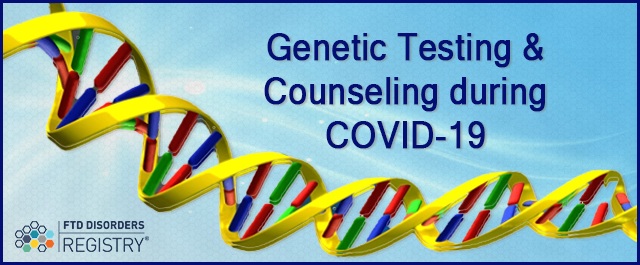PRESS & NEWS
Genetic Counseling & Testing During the Coronavirus Pandemic 2020

The coronavirus pandemic due to COVID-19 has changed the process of genetic counseling and testing.
The coronavirus pandemic due to COVID-19 has changed the process of genetic counseling and testing. In 2020, most counseling sessions have moved online.
“Telehealth was on the rise before COVID, and we’re never going back,” said Jill Goldman, M.S., MPhil, CGC, professor of genetic counseling in neurology and genetic counselor with the Taub Institute for Research on Alzheimer’s Disease and the Aging Brain at Columbia University Medical Center in New York City. “It’s been great for people who live far away from medical centers.”
Goldman prefers to meet in person so she can “read” a person’s facial expressions. “However, if we were meeting in person now, we would be wearing masks and all the benefits of meeting in person would be taken away. On Zoom they are very apparent. You may not get body language, but you’re going to get facial expressions.”
Like any change, there are positives and negatives of online sessions.
“I think the biggest advantage for me has been the ability to have whole families, people from across the country, on the same Zoom call,” Goldman said. “I’ve facilitated discussions between brother and sister where one said ‘We’ve never talked about this before,’ and they had a parent with one of these diseases. That’s pretty wonderful.
“The hassle is organizing any kids and getting the paperwork back. That’s more difficult to deal with, but not awful,” she added.
The person being tested has to sign the paperwork and the informed consent. A lot of information is provided through these documents so the person being tested is informed. Unfortunately, Goldman said this doesn’t mean that people take in all of the information.
Tests can be performed using blood or saliva. With the coronavirus pandemic, Goldman says she has been sending saliva kits to people’s homes. After following the instructions for performing a mouth swab, the person then sends the sample to the lab.
Together we can find a cure for ftd
The FTD Disorders Registry is a powerful tool in the movement to create therapies and find a cure. Together we can help change the course of the disease and put an end to FTD.
Your privacy is important! We promise to protect it. We will not share your contact information.



